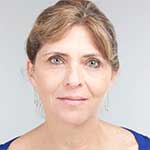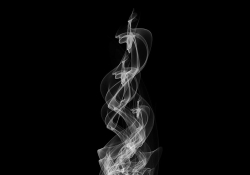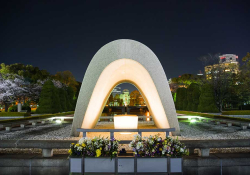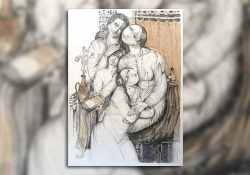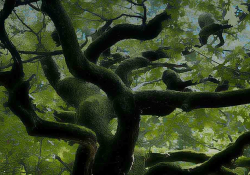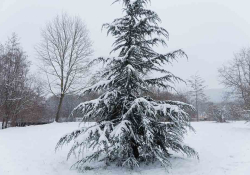Two Poems from the Galilee
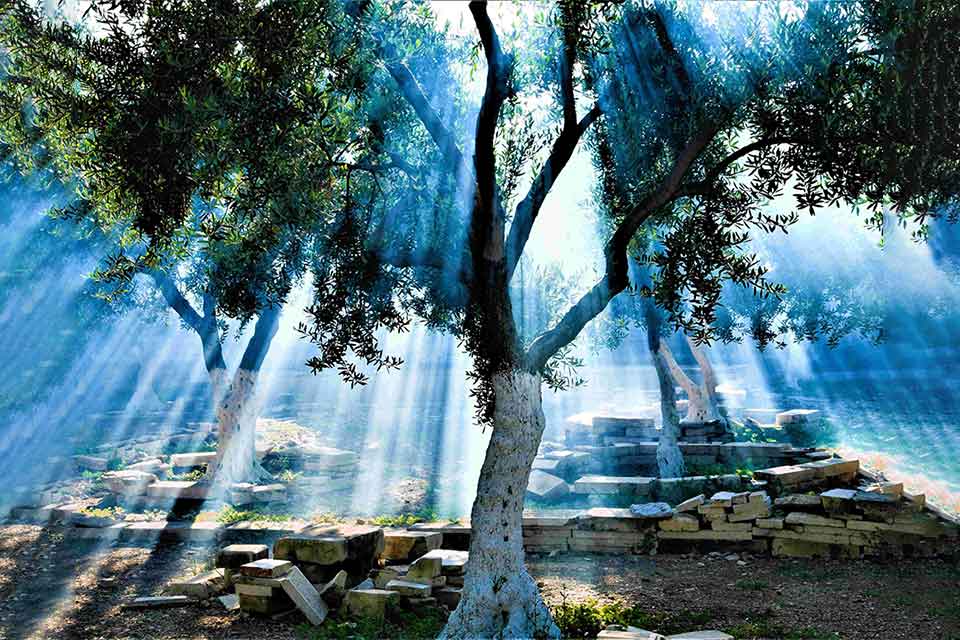
In the Beginning the Word
1
the word was
unverbed unruled just birthed
before bird on the altar or binding
at hilltop not taken or given in
swindling faith not proof of god whose
token or law was spoken
to frighten the soul oh black hole
where once my heart beat
In the beginning the word was
unlettered unfettered soft
syllables uttered as wind in an intimate
stroke across a desert slope hope
is the unfallen grandly silhouetted at
ridgetop light of the beginning
world resting in the night valley undimmed
by greed and lies —
In the beginning what was solitary
in the land escaped belongingly
no one’s a word imagined as spoken to self
from the deep breath or breathe
urgently urged to the newborn who
won’t cry her ear is too soft for this
babel she hears only sweet promised stream
through the dry wadi —
But as though in the beginning was we
knew the end with last sun
setting so darkness could speak its piece don’t
imagine peace no starshine or moonrise
to impede just a world filled to its brim with
despair debris through all the city
streets demolished above tunnels beneath bodies
everywhere and the only word was —
leave —
2
oh black hole
where once my heartbeat was
hope
is the unfallen grandly silhouetted at
ridgetop
breath or breathe sweet promised
stream through the dry wadi but we
don’t imagine peace just
despair debris demolished
leave oh black hole
where
once
was
in the beginning
After
The great dead teach the living not to hate.
—Brenda Hillman
The great dead returned.
The many dead.
The beautiful boys, all
the beautiful girls.
The desperate mothers, the
stunned fathers, the still
wide-eyed babies, the sweet
toddlers. The bodied
dead and those burnt to ash,
they too returned. The dead
we counted and the dead we couldn’t
count, we stopped counting as
the numbers rose too high.
The dead whose deaths broke
our breath into ragged tears
and the dead whose deaths left us
unmoved. The dead whose names
we knew, whose names we
spoke in our sleep, in our terror
dreams, and the dead whose names
we never knew and now can’t
care to know. The unburied
dead, rotting under the rubble, and
the dead buried in mass graves,
wrapped in plastic, in white sheets.
The dead borne by the weeping
crowd, carried on stretchers,
draped in defiant flags, placed
in yet one more disbelieving
grave. And the grandmothers
dead who had planned to die
in their beds, the old men dead,
those who had fled once
or twice before, then
planted trees to be themselves
rooted, olive and almond they
faithfully tended, till that morning,
that day, that night, that week, those
months they became one of the dead,
the great dead, the many
dead who now return,
demanding that we stop
speaking in their names,
that we stop making
more dead in their bleeding,
their aching and orphaned
names.
